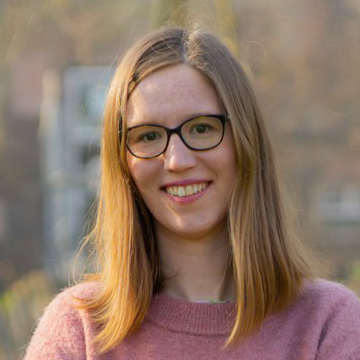 \
&
Contact us
\
&
Contact us
 \
&
Contact us
\
&
Contact us
Published on | 4 years ago
Last updated on | 1 year ago

sarah.stroobants@fwo.be
The European Union Institutions appoint external experts to assist in the evaluation of grant applications, projects and tenders, and to provide opinions and advice in specific cases.
In particular, experts assist in:
In addition, experts also can provide advice on the preparation, implementation and evaluation of EU programmes and design of policies.
As the evaluators are regularly rotated, the Commission is always looking for new candidates to join the 'pool of experts'. With respect to evaluations in particular, for each call, at least 25% of experts included in the 'pool' should be newcomers. Think you've got relevant skills? Find out below how to get started.
The Commission is looking for professionals in various fields and with varied skillsets to help evaluate EU projects. The evaluation panels are composed of experts with diverse backgrounds and from various sectors:
The Commission strives to achieve gender equality and strongly encourages female experts to register.
- You gain insights into the evaluation process and criteria of proposals for EU funding programmes, which will be useful when engaging in future projects proposals in European funding programmes
- You gain insight into the state of the art in your field in a European context
- It is an opportunity to engage in European services that support recognition of your expertise at EU level
Find out more about what to expect as an expert evaluator in the open call for experts published by the Commission. This call for expression details the selection criteria, the required expertise, the description of the tasks, their duration and the conditions for remuneration. More information on practicalities can also be found in the model contract for experts.
- Register in the Commission's expert database. The most suitable candidates are selected.
- List all relevant keywords that best describe your expertise (use the terminology of EU funding programmes).
- If selected you will be contracted from 2 days up to 2 weeks spread over several months.
- You will conduct the majority of your work remotely.
Expert evaluators are certainly allowed to submit project proposals themselves. However, as an evaluator, you may not assess your own project proposals, nor project proposals from colleagues working for the same employer or project proposals within a call for which you have submitted yourself.
Besides some information on the background of the call topics, there is for the Horizon Europe expert evaluators the standard briefing for experts (also attached to this infosheet). This presentation contains the following topics:
Even if you're not considering to become an expert, it's still worthwhile to spend 15 to 30 minutes to go through these slides. It allows you to be up-to-date on the mindset with which your proposal will be evaluated.
The European Commission publishes anually (with some delay) the whole list of experts. For the framework programme for research and innovation, the current list covers the period 2014-2018, and is divided into H2020 pillars, thematic areas and the country of evaluator's origin. You can browse this list here.
For further information, we refer to the "work as an expert" page on the F&T portal and the dedicated page on the Commission's website.
We offer news and event updates, covering all domains and topics of Horizon Europe, Digital Europe & EDF (and occasionally, for ongoing projects, Horizon 2020).
Stay informed about what matters to you.
By signing up, you can opt in for e-mail notifications and get access to
a personalised dashboard that groups all news updates and event announcements in your domain(s).
Only for stakeholders located in Flanders
The ROOT project obtained funding under Horizon 2020 topic ‘EGNSS applications fostering societal resilience and protecting the environment’. The project, which ran from November 2020 to July 2022, aimed to demonstrate the benefit of Galileo OSNMA signal to increase the robustness of critical telecom infrastructures.
The Flanders-based company Septentrio contributed substantially to completing this objective together with the other ROOT partners. The results of the project partially close a gap in the security of telecommunication networks dependent on satellite-derived time, with indirect benefits in curbing illegal attempts to disrupt network services.